AI-Powered Search: 50% Higher Click-Throughs
Driving efficiency by unifying technical data retrieval
The Why:
High Cost of Inefficiency
Beckman Coulter needed to provide customers with efficient access to a complex repository of information. Customers struggled to navigate disparate data sources, leading to frustrating, time-consuming searches that impacted productivity.
Core Challenges:
The existing search functionality failed to accurately interpret complex user intent, often returning irrelevant results. This made critical documents like safety datasheets and technical specifications difficult to locate.
- Search failed to interpret complex user intent.
- Difficult findability of safety datasheets and critical technical specifications.
- Disparate data sources created fragmented user experiences.
- Low customer satisfaction due to time-consuming search processes.
I usually just contact my sales rep for even the most basic information. Consuming time for them and for me. The site needs significant changes to compete with other vendors.
The Process:
AI Algorithms & User Validation
Our user-centered redesign began with existing Voice of the Customer (VOC) research to identify pain points, which informed the development of sophisticated AI algorithms for improved search relevance. I created a User Journey Map highlighting persona needs across awareness, engagement, and sales stages, confirming the findability difficulties.
In partnership with the CX Manager, I conducted usability testing with 10 remote participants to validate design concepts. Key findings highlighted the need for improved filtering using industry terms and emphasizing technical specifications in the search display.
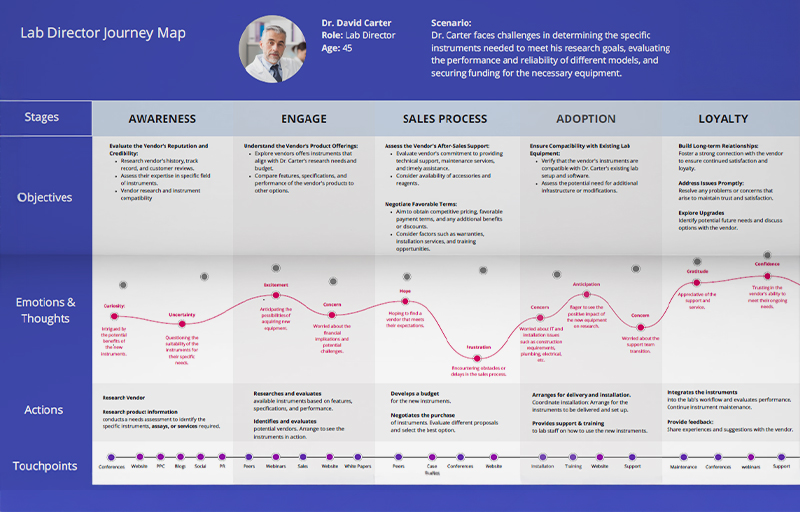 Artifact: The User Journey Map detailing buyer pain points.
Artifact: The User Journey Map detailing buyer pain points.
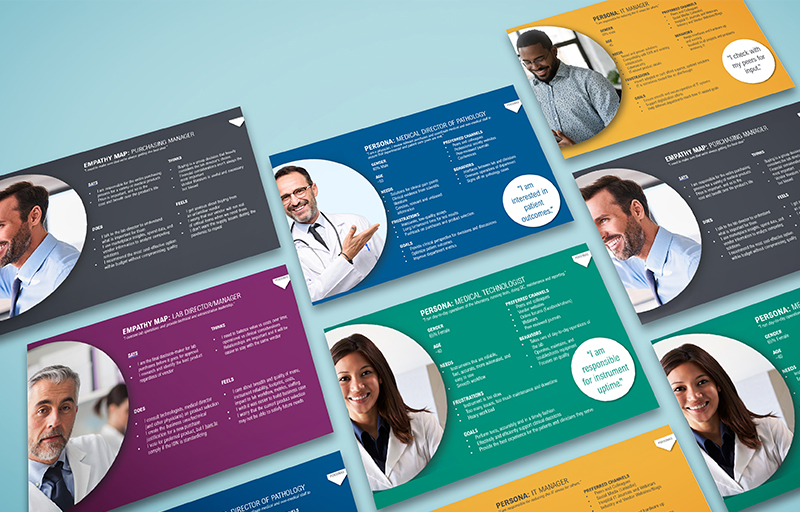 Beckman Coulter's buyer personas used to map user pain points
Beckman Coulter's buyer personas used to map user pain points and decision-making stages.
My Design Decisions:
Interface Strategy
To translate these user needs into the new search experience, my interface design was guided by principles maximizing data findability and technical accessibility:
- Strategy: Use of a phased approach: focusing on core usability enhancements first, then including new brand elements.
- Data-Informed UI: Leveraged customer feedback and data to define key UI decisions and common user nomenclature.
- Categorization: Created a display interface categorizing primary tabs and expansion sections for SDS key labels.
- Scanability: Maximized findability by integrating quick-view product thumbnails and clear search labels.
- Filtering: Implemented progressive loading (side filter, one section open) to reduce complexity and cognitive load.
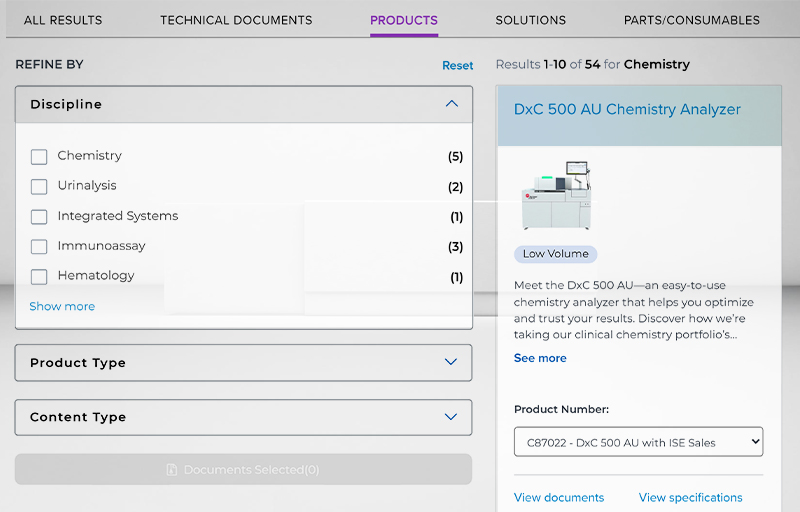 Filterable product search interface with expandable results
Filterable product search interface with expandable resultsand clear categorization.
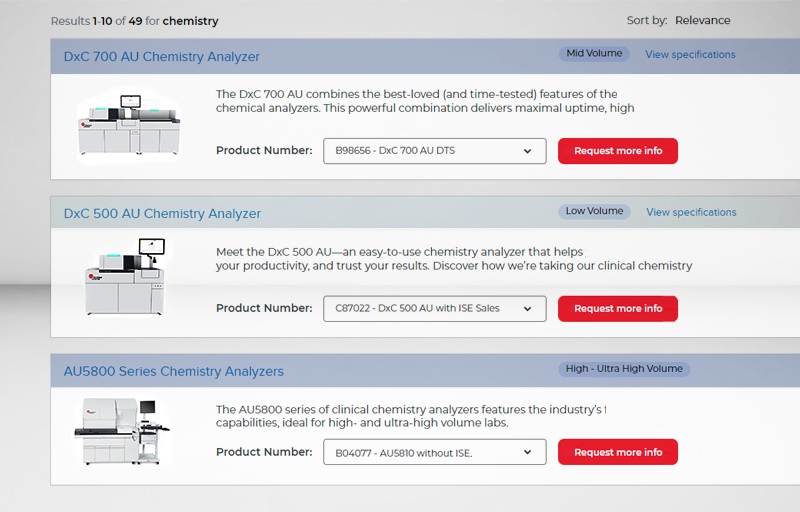 Product listing page with streamlined navigation and prominent CTAs.
Product listing page with streamlined navigation and prominent CTAs.
The Pivot:
Balancing a Brand Redesign & Design Goals
Through continued user testing, we uncovered a critical constraint: Our original display layout did not accommodate long product titles or complex technical document names without breaking the visual grid and impacting scannability. In addition, Beckman Coulter was also undergoing a companywide rebrand.
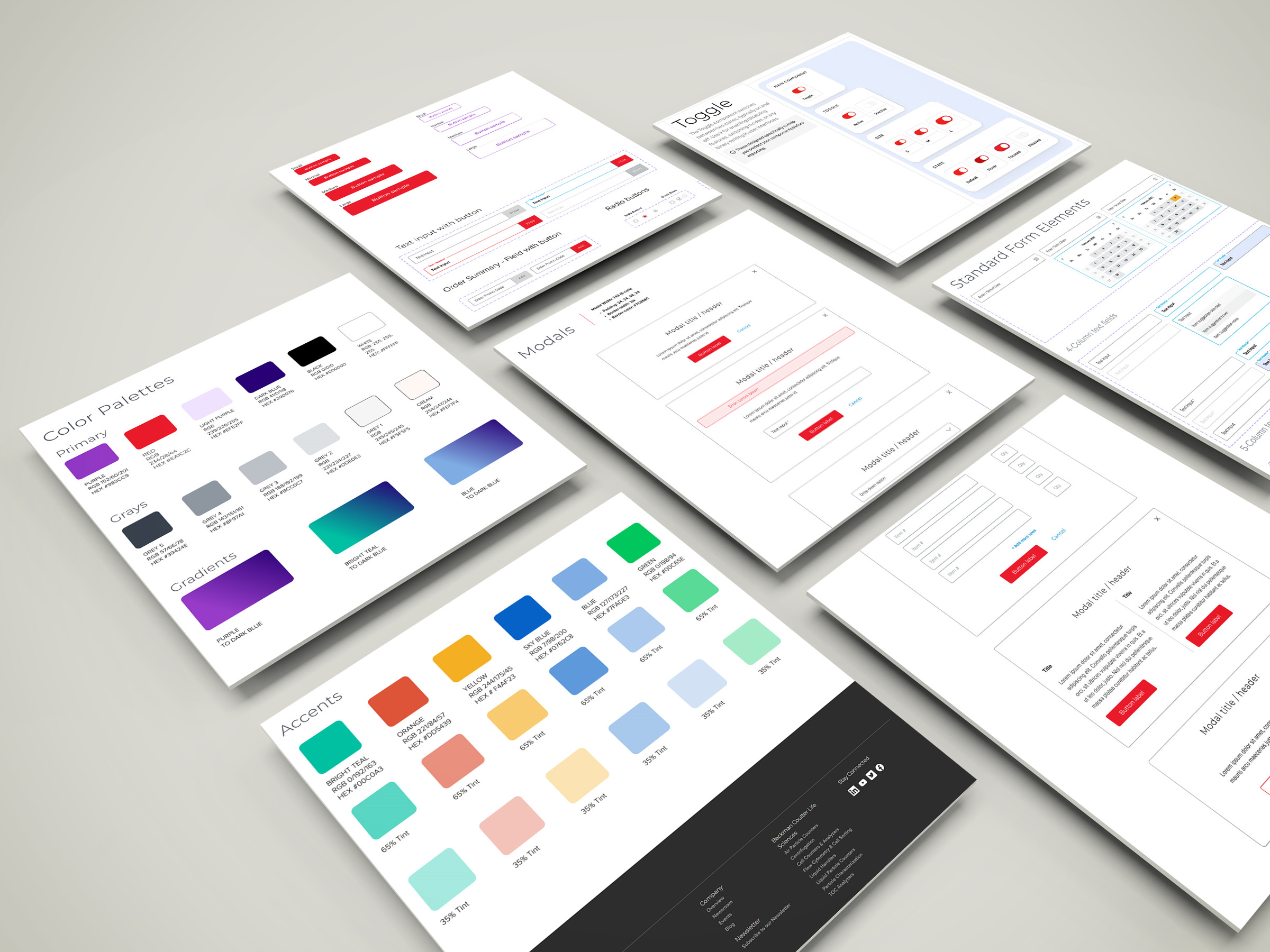 Design system documentation includes color palettes, gradients, and UI component specifications to ensure brand consistency.
Design system documentation includes color palettes, gradients, and UI component specifications to ensure brand consistency.
Display Optimization:
- Integrate the NEW design system to ensure consistency across all redesigned elements.
- Introduced a tooltip on hover for the full name, ensuring information fidelity without sacrificing scanability.
- Adjusted design column sizing to allocate more space to the title column on both desktop and mobile displays.
- Capped the display name length (text truncation) to preserve a clean grid layout.
The Outcome:
Business & User Impact
The AI-driven search solution significantly improved information retrieval by better understanding complex user intent. The redesign provided unified access to all Beckman Coulter resources with advanced filtering and intuitive category tabs. This led directly to measurable business success:
Key Results:
- Updated design system that consistently adhered to the company's new brand guidelines
- Less scrolling and fewer clicks by leveraging AI and powerful filters.
- Unified platform eliminating fragmented user experiences across disparate data sources.
- Improved customer satisfaction by prioritizing quick access to technical information.
Design Insights:
What I Learned
Key lessons include the importance of capturing customer feedback throughout the entire journey—VOC research and formal usability testing must be continuous. The search functionality acts as a bridge between the sales process and post-purchase stages, suggesting relevant content that supports users throughout their experience. This reinforces the value of designing systems that not only solve immediate problems but also anticipate future user needs through intelligent recommendation enhanced by the implementation of advanced AI algorithms to improve findability.
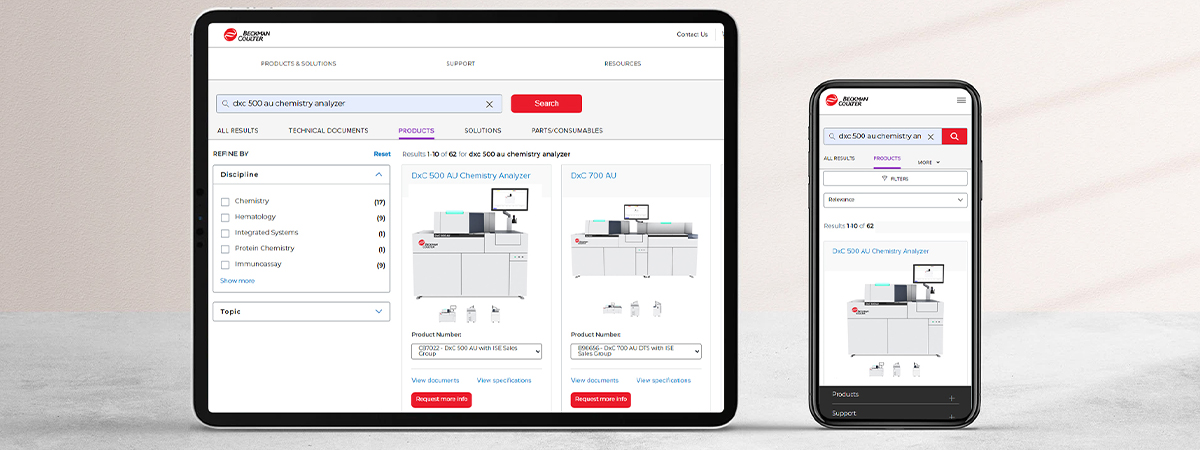 Responsive search interface showing desktop and mobile views with filterable results and product specifications.
Responsive search interface showing desktop and mobile views with filterable results and product specifications.